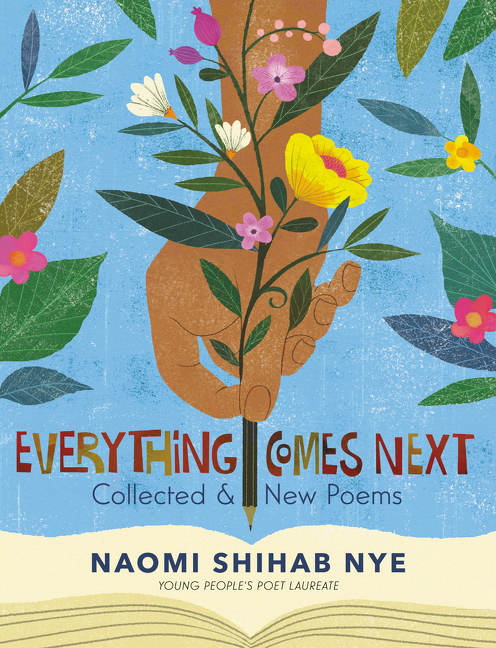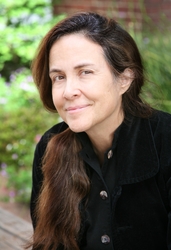Meet-the-Author Recording with Naomi Shihab Nye
Everything Comes Next: Collected and New Poems |
Naomi Shihab Nye introduces and shares some of the backstory for creating Everything Comes Next: Collected and New Poems.
Translate this transcript in the header View this transcript Dark mode on/off
Naomi Nye: Hi, my name is Naomi Shihab Nye and I am the author of Everything Comes Next: Collected and New Poems. In pulling together a collected poems, I think we consider poems which seem to have a durability factor for ourselves, poems we don't mind reading out loud if we're giving a reading somewhere, poems that seem to have stood some tiny test of time, or we consider poems that people are always asking about, asking for, requesting that you read them to their students and since I have worked in classrooms so much over my lifetime, I had the added benefit of knowing which poems teachers often prefer giving to their students to talk about before I get there. So those were some of the poems I tried to pick. Of course, the new ones were the wild cards and then I tried to throw in some that were my personal favorites even if no one had ever mentioned them.
That idea that you would read poems you really love, talk about them a little bit, and encourage others to craft a poem that had some connection to that poem you've read together, or those poems, pick one out that you liked best. That really became a method of teaching, a tool for teaching for me over the years. The great Marvin Bell used to say, "Read something, then write something, then read something, then write something else and let what you write, reflect in some way, what you have read." That really makes sense to me. And it also keeps those worlds hinged together, the reading and writing worlds; they're never separate. That helps me when I try to write counsel to students, advice at the end of a book, I think, "Well, what would have helped me if I were a teenager reading this book?" I want students to realize that I don't have any more material than they do. I mean, a longer life at this point, but the kind of material that I've been writing from all my life is the kind of material we have in our days. So just to find new ways, new angles to look at our days and our own material that we're carrying and absorbing everywhere we go, hard to get away from it, start there.
I had always declined any offering of a poet laureate position because I felt that there were a lot of people who would just glory in such a title and I felt like loving poetry itself and being with poetry, working with poetry every single day was enough for me. And so I mentioned that to a friend of mine who was poet laureate in another state, and he became a little huffy with me and said, "Well, that's not a good way to look at it. You should think of it as service to poetry." I said, "Oh yeah right, service to poetry." And so then when The Poetry Foundation called me one summer day, even told me they had selected me. They didn't ask me if I wanted to do it, they just told me I was going to do it. So I was a little shocked, but luckily I had this phrase in my mind, service to poetry, and I thought, okay, I'll do my best.
Well, it's been terrific. I had this wild idea that I wanted to do a public workshop with Jewish and Muslim kids together in a city where I didn't live. Will they come? What will it be like? It was an unbelievably beautiful success. Because I have this position, I can dream up things like that and go somewhere and someone will help me put it together so I'm very grateful to The Poetry Foundation for having such a position and for letting me be in touch with many more teachers through the virtual realm than I might get to be otherwise. I keep making these videos for teachers and they're channeled through The Poetry Foundation in Chicago, but the teachers don't all have to be in Chicago. So just being able to have a channel to connect with more people has really been great. Making as many connections as possible, that seems to me something poetry always is able to do.
I will read a short poem from page 202 called Window:
Window. Hope makes itself every day. Springs up from the tiniest places. No one gives it to us. We just notice it, quiet, in the small moment. The two-year-old kissing the window, he said, because someone he loved was out there.
This Meet-the-Author Recording with Naomi Shihab Nye was exclusively created in November 2020 by TeachingBooks with thanks to HarperCollins.



